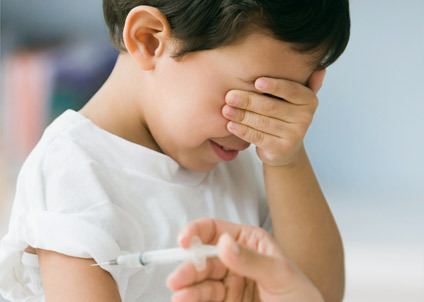 A scientist with the World Health Organisation has testified, during ongoing hearings in Strasbourg, France, that the swine flu pandemic was part of an overblown “angst campaign”, devised in conjunction with major drug companies to boost profits for vaccine manufacturers.
A scientist with the World Health Organisation has testified, during ongoing hearings in Strasbourg, France, that the swine flu pandemic was part of an overblown “angst campaign”, devised in conjunction with major drug companies to boost profits for vaccine manufacturers.
Professor Ulrich Keil, director of the WHO’s Collaborating Centre for Epidemiology, slammed the organization and its flu chief, Dr Keiji Fukuda while giving evidence before The Parliamentary Assembly of the Council of Europe (PACE).
“With SARS, with avian flu, always the predictions are wrong…Why don’t we learn from history?” Keil said. “It [swine flu] produced a lot of turmoil in the pubic and was completely exaggerated in contrast with all the really important matters we have to deal with in public health.”
The WHO adviser on heart disease, added that the decision had led to a “gigantic misallocation” of health budgets.
“We know the great killers are hypertension, smoking, high cholesterol, high body mass index, physical inactivity and low fruit and vegetable intake,” he said. “In spite of all these facts, governments instead wasted huge amounts of money by investing in pandemic scenarios whose evidence base is weak.”
PACE, a 47 nation body encompassing democratically elected members of parliament, will determine whether a “falsified pandemic” was declared by WHO in June 2009 on the advice of medical advisors, many of whom have close financial ties to the very pharmaceutical giants – GlaxoSmithKline, Roche, Novartis, – that produced the H1N1 vaccines.
It will also look into the controversy surrounding the fact that two shots were initially advised when it was later revealed that one dose was entirely suitable, as well as investigating concerns over hastily developed vaccines containing adjuvants.
Pharmaceutical companies are thought to have made a profit of somewhere in the region of $7.5-$10 billion on H1N1 vaccines, recouping the billions they had invested in researching and developing pandemic vaccines after the bird flu scares in 2006 and 2007.
The worldwide death toll from H1N1 is thought to be around 13,500, just over a third of the number who die from regular flu every year in the U.S. alone.
Heading the hearings is the former chairman of the Health Committee of PACE, Dr. Wolfgang Wodarg. A former German lawmaker, a medical doctor and epidemiologist. Wodarg has referred to the swine flu pandemic as “one of the greatest medical scandals of the century.”
Wodarg has pointed out that the WHO softened the definition of a pandemic from an outbreak in several continents at once with an above-average death rate, to one where the spread of the disease is constant.
Just one month after changing the definition, and with just 144 people having died from H1N1, the flu was given the highest threat classification possible, a “stage-six pandemic alert”. By comparison, the mildest 20th Century pandemic killed a million people.“I have never heard such a worldwide echo to a health political action,” Wodarg, an epidemiologist who formerly led the health committee for the Council of Europe, said at Tuesday’s hearing.
“It was stated in panic- stricken terms that this was a flu that could threaten humanity and a great number of humans could fall ill. This is why billions of dollars of medications were bought.” Wodarg said.
He added that the the change in definition “made it possible for the pharmaceutical industry to transform this opportunity into cash, under contracts which were mainly secret.”
“In my view, the WHO undertook an incomprehensible action, which cannot be justified by scientific evidence. The Council of Europe should investigate this to see how WHO can undertake this kind of dangerous nonsense,” said Dr Wodarg.
WHO’s flu chief, Dr Fukuda, insisted that its swine flu scientists do not have conflicts of interest owing to close links with pharmaceutical companies.
“Let me state clearly for the record – the influenza pandemic policies and responses recommended and taken by WHO were not improperly influenced by the pharmaceutical industry.” Fukuda told the inquiry.
He said those calling the epidemic fake were wrong and irresponsible.
PACE’s findings are expected to be announced January 29 and will likely be followed by an in-depth study and recommendations to European governments.





